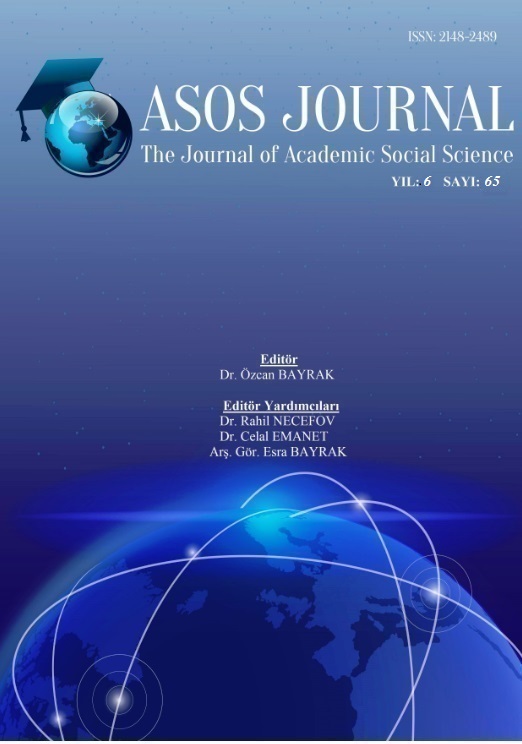ORTAOKUL ÖĞRENCİLERİNİN FEN ÖĞRENMEYE YÖNELİK MOTİVASYON DÜZEYLERİNİN BAZI DEĞİŞKENLERE GÖRE İNCELENMESİ
Author :
Abstract
Bu çalışma ortaokul öğrencilerinin fen öğrenmeye ilişkin motivasyon düzeylerini belirlemek, bazı değişkenlere göre motivasyon puanları arasında anlamlı fark olup olmadığını araştırarak, motivasyon düzeylerinin arttırılmasına ilişkin öneri ortaya koymak amacıyla gerçekleştirilmiştir. Araştırmada tarama modeli ve kesitsel türü uygulanmıştır. Araştırma Ankara’daki sekiz devlet ortaokulunda 1629 öğrenci ile yapılmıştır. Veri toplama aracı olarak “Fen Öğrenmeye Yönelik Motivasyon Ölçeği” kullanılmıştır. Araştırmanın sonucunda öğretmen cinsiyeti, öğretmen hizmet süresi, evinde çalışma odası bulunması ve evinde bilgisayar bulunması değişkenlerine göre ortaokul öğrencilerinin motivasyon düzeyleri arasında anlamlı farkın olmadığı belirlenmiştir. İnternet kullanma durumu, fen dersi başarı puanı, bilimsel bir etkinlikte görev alma, öğretim materyali türü, teknolojik uygulamaların kullanılma sıklığı, fen dersi öğretmenini sevme düzeyi, fenle-bilimle ilgili kitap okuma ve yayın izleme değişkenlerine göre motivasyon üzerinde anlamlı fark olduğu görülmüştür. Ayrıca ortaokul öğrencilerinin yaş düzeyi arttıkça, fen öğrenmeye yönelik motivasyon düzeylerinde anlamlı bir azalma olduğu belirlenmiştir.
Keywords
Abstract
This study was conducted to determine the motivation towards science learning level of secondary school students and to offer a suggestion for increasing their level of motivation by investigating whether there is a significant difference between the scores of motivation with respect to the some variables. A survey model and cross-sectional type is used in the research. The study was conducted with 1629 students in eight state secondary schools in Ankara. “The Motivation towards Science Learning Scale” was used as data collection tool. As a result of the study, it was determined that gender of the teacher, the serving duration of the teacher, the presence of a study room at home and the presence of a computer at home variables were not statistically significant on motivation levels. Furthermore, it was concluded that internet usage status, science course success score, participation in a scientific activity, type of teaching material, usage frequency of technological applications, liking science teacher, reading books about science and watching science-related publications variables were statistically significant on motivation level. Furthermore, it was determined that as the age level of secondary school students increases, the motivation level towards science learning decreases significantly.





